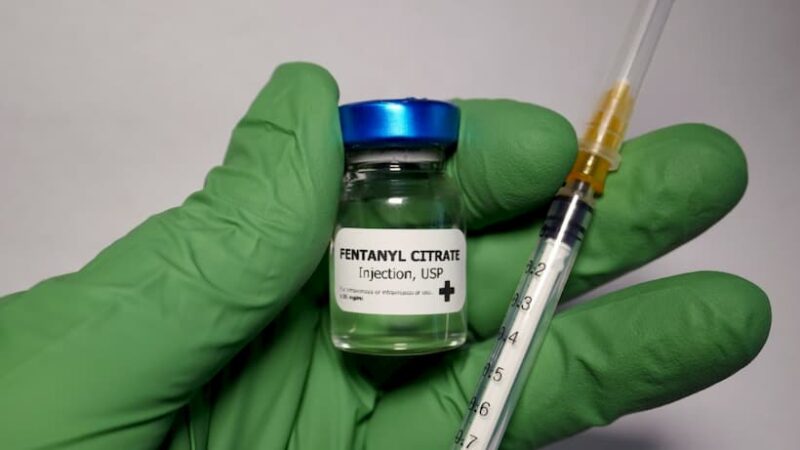What is fentanyl?
Fentanyl is a powerful synthetic opioid drug used to treat severe pain, usually in patients with cancer or after surgery. Developed in the 1960s, fentanyl acts on opioid receptors in the brain, providing powerful pain relief.

Chemical structure and mechanism of action
Fentanyl belongs to a group of synthetic opioids that also includes drugs such as oxycodone and methadone. It acts on the central nervous system by binding to opioid receptors, resulting in a significant reduction in the perception of pain and often causing a feeling of euphoria. This is what makes fentanyl not only an effective pain reliever, but also a subject of abuse.
Effects and side effects
Positive effects
Fentanyl is used in medicine to relieve acute and chronic pain. Its benefits include:
- Quick start of action.
- Powerful analgesic effect.
- Can be used in various forms: patches, injections, tablets and sprays.
Negative effects
Fentanyl can also cause a number of serious side effects, especially when used incorrectly:
- Nausea and vomiting.
- Constipation.
- Dizziness.
- Sedation and confusion.
One of the most dangerous side effects is respiratory depression, which can lead to death. This is especially true in overdose, making fentanyl one of the most dangerous opioids when used incorrectly.

Addiction treatment
Development of addiction
Fentanyl abuse can lead to rapid addiction. Due to its high potency, even small doses can be addictive. People who use fentanyl without a prescription or in higher doses than prescribed are at high risk of developing opioid addiction.
Treatment methods
Drug treatment
Medicines such as methadone and buprenorphine are used to help reduce withdrawal symptoms and opioid cravings. Naloxone can be used for emergency treatment of overdose.
Psychotherapy
Cognitive behavioral therapy (CBT) and motivational interviewing can help patients change their attitudes toward drug use and develop strategies to prevent relapse.
Rehabilitation programs
Comprehensive rehabilitation programs include detoxification, long-term inpatient or outpatient treatment and support. They provide patients with the resources and support they need to make a full recovery.

Conclusion
Fentanyl is a powerful opioid drug that plays an important role in pain management, but also poses significant risks if misused. Fentanyl addiction is a serious problem that requires a comprehensive approach to treatment. Medication therapy, psychotherapy and rehabilitation programs are the main methods of helping people suffering from addiction.
The effective use of fentanyl for medical purposes and the fight against its abuse requires awareness and understanding on the part of both medical professionals and society at large.
Comments